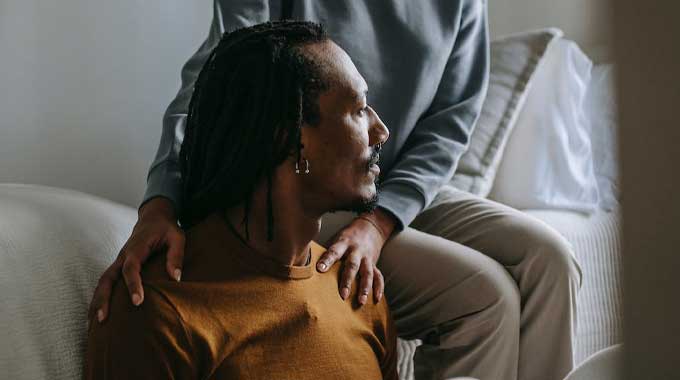Upon attending a drug and alcohol rehab, you’ll be required to face up to your past. It can be painful to revisit a period of your life marked by addiction and lack of control, especially if you feel guilty or ashamed of the things you’ve done and the hurt you may have caused. However, doing so is vital.
If the above resonates with you, remember you are not your addiction. Nevertheless, it’s important to acknowledge your past actions and the people who may have been affected. Often, this means making amends with those you’ve hurt.
As part of the 12-step program, you’ll have to seek forgiveness from others. This is the only way you’ll be able to heal broken relationships and give friends and family closure.
Why Is Seeking Forgiveness Important?
Many people who battle substance abuse report feelings of guilt and shame. Often, this is magnified in rehab as you withdraw from drugs or alcohol and find yourself able to think more clearly.
Though seeking forgiveness and making amends can be challenging, failure to do so could make your recovery and time in rehab much more difficult, especially as you won’t have any closure, which will directly impact how you view yourself. After all, self-forgiveness and acceptance are crucial to achieving sobriety, but you can’t do that if you’ve not sought forgiveness from others.
Kinds of Amends
Step nine of the 12-step program is about seeking forgiveness and making amends. Unbeknown to many, there are three kinds of amends you can make, including:
- Direct amends – This involves taking direct responsibility for your past actions and making amends in person.
- Indirect amends – This involves making amends in situations where damage can’t be undone and could include volunteering or charitable work.
- Living amends – This is all about taking action and proving to yourself and others that you’ve made a lifestyle change, are committed to sobriety, and will no longer engage in destructive behaviors.
Whatever kind of amendment you choose to make, it’s never easy to face up to your past. You never know what kind of reaction you’re going to get or if you’ll be rejected or not, but it’s essential to try anyway. It’s not just for other people’s benefit – it’s also for your own healing.
Here are some tips to help make the process as easy as possible.
Do It in Person
If it’s safe and reasonable to do so, always try to make amends in person. Not only will this show those you’ve hurt that you’re serious about your intentions, but it will also prove to them that you’re sincere and willing to confront your past head-on.
Of course, it’s easier to write a letter or make a call, but making amends in person will help you express yourself better. Things can get lost in translation with writing, and reading each other’s body language is integral to the communication process.
Return to the homepage: Orange County Rehabs
Actions Speak Louder Than Words
Making amends isn’t just about saying sorry. Although apologizing is an important part of the process, it won’t mean anything if you don’t prove that you’re making an effort to change.
Friends and family might be used to you making false promises, so you’ve got to go against their expectations and take action. If you owe money, pay it back. If you need to repair a relationship, make an active effort to communicate and meet with the person regularly. It could even be something as simple as attending group or family therapy, as this shows you’re taking a step in the right direction.
Be Open to Listening
Seeking forgiveness isn’t just about opening up; it’s also about listening. Though it can be difficult to hear the consequences of your past actions, you’ve got to give anyone affected by your addiction the chance to voice their concerns. Doing so will ensure that you understand and empathize with them. In turn, you’ll be able to change your behavior to make up for your wrongdoings.
Ask Them What You Can Do
It’s great if you’ve offered to do certain things and take action, but consider asking your family and friends what they’d like to see from you. Not only will this show them that you’re serious about making amends, but it will also increase your chances of rebuilding the relationship.
To Conclude
Seeking forgiveness is never easy. There might be times when you’re faced with an unexpected response, and things might not always go your way. You may even experience rejection. Understand that this doesn’t reflect who you are right now – your friends and family might just need time to process everything, so give them space.
It might not be easy, but making amends and accepting yourself is the only way you’ll truly be able to achieve and stick to a life of sobriety. It’s all about acknowledging your past, letting go, and taking steps to build a better life for yourself. In fact, a study conducted by the Illawarra Institute for Mental Health and School of Psychology proves the impact of forgiveness and acceptance on recovery, indicating that prolonged feelings of guilt and shame are associated with reduced recovery rates.






